Sweet Dream | Guatemala, Washed
Regular price €11,00




Country: Guatemala
Region: Huehuetenango
Farm: La Union
Farmer: Jorge Diaz
Taste notes - Chocolate truffle, toffee, dried apple, plum.
This beautiful washed Guatemalan lot from Jorge Diaz delivers everything you could imagine from Sweet Dream espresso. A round body, like a melting chocolate truffle in the mouth, combines classic toffee-like sweetness with notes of dried apple and plum in the aftertaste.
24-h Shipping terms
The shipping out in 24-hour is available only for selected products;
Please keep in mind that not all products are eligible for shipping out in 24-hour;
This offer applies to orders placed on weekdays before 12:00;
If the order is placed after 12.00 on a working day, the coffee is shipped out within 48 hours (on a working day).
If you have any questions about your order, please contact our customer service via email webshop@rocketbeanroastery.com.
We respond to customer inquiries within 3 hours on all working days, within working hours (9-18).
Region
Huehuetenango (often called Huehue) is in the western part of Guatemala, on the border with Mexico, and trade across the border thrives. Huehue is very remote, and the roads in the region can be difficult. Before flights from the city, reaching farms in this area used to take 8-10 hours of bumpy driving in the high mountains. The altitude of this region, combined with the hot, dry winds that blow over from Tehuantepec plain of Mexico, creates excellent conditions for quality coffee here. Due to the altitudes and remoteness of the region, most farmers process their coffee at home instead of at the central wet mill.
Farmer
Jorge Diaz is a fourth-generation coffee producer and farmer from the Huehuetenango region. La Union farm was founded by his great-grandparents. It has been improved over the years through various methods. Over time, the farm has grown from only half a hectare to 12.7 hectares. It is located in the southern part of Guatemala near the Pacific Ocean. The soil is clay-based, benefiting coffee trees by strengthening their root systems. Annually, La Union produces over 20,750 kg of green coffee processed on the farm and delivered globally. Jorge is fully involved in managing and operating the processes on the farm."
Varieties
Caturra
This variety was discovered on a plantation in the Minas Gerais state (Brazil) at the beginning of the 20th century. Caturra is a mutation of the Bourbon variety, and it is known as the first na
Typica
Also referred to as Arabigo in Central America, it is a variety that originated a long time ago in Ethiopia and is the main base of the arabica we know today. This variety had a long journey until it was grown all around the globe. Its beginnings trace back to 15th and 16th centuries in Ethiopia, when it was transported to Yemen and later to Asia. In the early 18th century, Typica beans were shipped from Indonesia and Java, to botanic garden of Amsterdam, from where they were transported and cultivated in South and Central America. It was a widely cultivated variety, but due to small yields and low susceptibility to coffee disease, it was replaced by other coffee varieties over time. Despite that, Typica is well adapted to colder conditions, so it can be grown in higher altitudes and resist cold temperatures at night. When treated correctly, it delivers a sweet and round cup profile with pleasant medium acidity and floral notes.
turally occurring coffee variety mutation ever discovered. It became popular because of its small-sized crops, high yield, and ability to mature coffee cherries faster than other varieties after planting. The specifics of this variety meant that farmers could grow more coffee using less land. Caturra got its name because of its crop size. In the Guarani language, “caturra” means small. In a cup, Caturra reflects a delicate taste profile with bright acidity and a low-to-medium body.
Processing
When coffee cherries are ready for harvest, they are handpicked from trees in the late afternoon. On the same day evening, the pulp is removed, and beans are then fermented for 15 hours in a water tank to remove the remaining pulp from the beans. Then, this lot is washed and laid on the patio to be sun-dried for several days. In the end, coffee is hulled, stored and later packed in jute bags with a grain pro layout inside.



